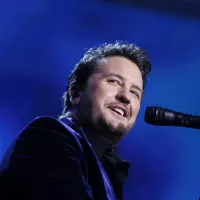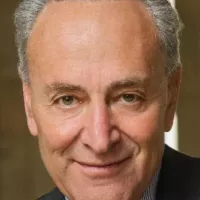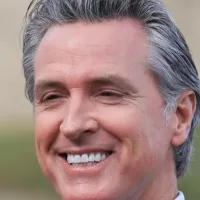Club de Regatas Vasco da Gama, often called Vasco da Gama or simply Vasco, is a prominent sports club located in Rio de Janeiro, Brazil. Initially established as a rowing club, it expanded into various sports, achieving widespread recognition primarily through its men's football team. The team participates in the Campeonato Brasileiro Série A, the highest level of Brazilian football, and the Campeonato Carioca, the top-tier state league of Rio de Janeiro.
February 1, 1908: Prevention of Royal Title Granting
On February 1, 1908, the regicide of King Carlos I prevented the granting of the Royal Title to Vasco da Gama.
November 1915: Merger with Lusitania Sport Clube
In November 1915, Vasco merged with Lusitania Sport Clube, leading to the creation of Vasco's footballing department.
1915: Creation of football department
In 1915, Vasco created its football department, expanding from its original focus on rowing.
May 1916: First match of the football team
On May 3, 1916, Vasco's football team played its first match, a 10–1 loss to Paladino FC.
1916: First Football Kit
In 1916, Vasco's first football kit was created, and it was completely black, identified by a white tie and belt.
1918: First Official Anthem
In 1918, Vasco's first official anthem was composed by Joaquim Barros Ferreira da Silva.
1920: Main Logo Layout
In 1920, the main logo layout was established for Vasco da Gama. It has been modified throughout the years, but still maintains its original form.
1922: First Clássico dos Milhões Match
In 1922, Vasco and Flamengo first met in the Clássico dos Milhões, with Flamengo winning 1–0. This rivalry has the highest average attendance in the Serie A.
1923: First match between Vasco and Botafogo
In 1923, Vasco and Botafogo played their first match, resulting in a 3–1 victory for Vasco.
1923: First top-division title
In 1923, Vasco won its first top-division title with the Campeonato Carioca, notable for including diverse players.
1923: Campeonato Carioca Victory
In 1923, Vasco won the Campeonato Carioca during their debut season in the state's first division, with a squad in which the majority of players were black, influencing the fight against racism in Brazilian football.
1923: Inspiration for 2010 Away Kit
The Vasco team of 1923 was willing to give up playing due to opposition to black players, and inspired the design of the 2010 away kit.
1924: Pressure to ban players
In 1924, Vasco da Gama was pressured by the Metropolitan League to ban black and poor players. Vasco refused, leading to their exclusion from the league.
1924: Resposta Histórica
In 1924, Vasco sent the Resposta Histórica, refusing the discriminatory order of the Rio de Janeiro league, which wanted to ban Vasco from its competitions if it did not disaffiliate twelve of its black players.
1925: Readmission into the "elite" league
In 1925, Vasco was readmitted into the "elite" league, retaining its black and mulatto players.
April 1927: Inauguration match of Vasco's Stadium
On April 21, 1927, Vasco's Stadium was inaugurated with a match against Santos, which Santos won 5–3.
1927: Inauguration of São Januário Stadium
In 1927, Vasco da Gama's stadium, São Januário, was inaugurated, with a maximum capacity of 35,000 people, but national matches could only fit at most 21,880 people for security reasons.
1929: Tie and Belt Removal
In 1929, the white tie and belt were removed from Vasco's all-black kit.
1930: Founding of Tomazinho Futebol Clube
In 1930, Tomazinho Futebol Clube, from São João de Meriti, Rio de Janeiro state, was founded. The club's logo is inspired by Vasco's logo and shares the same colors.
April 1931: Victory against Flamengo
On April 26, 1931, Vasco had a historic 7–0 victory over rivals Flamengo, which is the largest victory margin between the two clubs.
1931: Founding of Vasco Esporte Clube
In 1931, Vasco Esporte Clube, from Sergipe state, was founded.
1933: Football becomes professional in Brazil
By 1933, when football became professional in Brazil, most of the big clubs had black players.
1933: Official adoption of professionalism
In 1933, Vasco da Gama officially adopted professionalism, becoming a pioneer in Brazil.
1942: Unofficial Popular Anthem
In 1942, Lamartine Babo composed Vasco's most popular, though unofficial, anthem.
1944: Start of Expresso da Vitória era
In 1944, the club began to be nicknamed 'Expresso da Vitória' (Victory Express), marking a period of success.
1945: Campeonato Carioca Title
In 1945, Vasco da Gama won the Campeonato Carioca, marking the start of their golden era known as 'Expresso da Vitória'.
1945: Rio de Janeiro championship
In 1945, Vasco won the Rio de Janeiro championship.
1945: Introduction of Black Diagonal Sash
In 1945, Vasco's kit color was changed to white, and a black diagonal sash was introduced, inspired by River Plate's kit.
1945: Similarity to 1945 Kit
In 1996, the Vasco kit became very similar to the 1945 one, with the exception of the addition of a thin red line that outlines the sash.
1947: Rio de Janeiro championship
In 1947, Vasco won the Rio de Janeiro championship.
1948: South American Championship of Champions Victory
In 1948, Vasco became the first Brazilian team (club or national team) to win an international tournament and the first club in the world to win a continental-level tournament, the South American Championship of Champions.
1948: South American Club Championship
In 1948, Vasco da Gama won the South American Club Championship, the world's first ever continental club tournament.
1949: Rio de Janeiro championship
In 1949, Vasco won the Rio de Janeiro championship.
1950: First match at Maracanã stadium
In 1950, Vasco da Gama played their first home match at the Maracanã stadium.
1950: Rio de Janeiro championship
In 1950, Vasco won the Rio de Janeiro championship.
1951: Founding of Vasco Sports Club
In 1951, Vasco Sports Club, an Indian football club, was founded.
1952: Founding of Associação Desportiva Vasco da Gama
In 1952, Associação Desportiva Vasco da Gama, from Acre state, was founded.
1952: Campeonato Carioca Title
In 1952, Vasco da Gama won another Campeonato Carioca title, continuing their dominance during the 'Expresso da Vitória' era.
1952: Rio de Janeiro championship
In 1952, Vasco won the Rio de Janeiro championship.
1953: Wins three international tournaments
In 1953, Vasco da Gama won three international tournaments: the Torneio Intercontinental Octogonal Rivadavia Correa Meyer, the Santiago International Tournament and the Quadrangular Internacional do Rio de Janeiro.
1955: Start of Real Madrid's dominance
Between 1955 and 1960, Real Madrid won every international tournament with the exception of the Tournoi de Paris title.
1956: Campeonato Carioca champions
In 1956, the Vascaínos became Campeonato Carioca champions and Little World Cup runner-up, losing the title to Di Stefano's Real Madrid, which Vasco would beat in a friendly shortly after the tournament, becoming the first non-European club to defeat a European Champion.
June 1957: Tournoi de Paris title
On June 14, 1957, Vasco sealed the 1957 Tournoi de Paris title, winning against European champion Real Madrid (4–3).
1957: Tournoi de Paris Victory
In 1957, Vasco won the Tournoi de Paris against Real Madrid in the final, becoming the first to win an intercontinental tournament contested by two continental champion clubs.
1957: Possible best club
Many think this Vasco was one of the best clubs of the world at the time, and maybe the best in 1957–58.
1958: Founding of Esporte Clube Vasco da Gama
In 1958, Esporte Clube Vasco da Gama, from Americana, São Paulo state, was founded.
1958: Rio-São Paulo Tournament title
In early 1958, Vasco won the Rio-São Paulo Tournament. Also in 1958, Vasco became the Campeonato Carioca "super-superchampion".
1959: Vasco Players called up for Copa America
In 1959, five Vasco players were called up for the 1959 Copa America: Paulinho, Orlando, Bellini, Coronel (defenders) and Almir (striker)
1960: End of Real Madrid's dominance
Between 1955 and 1960, Real Madrid won every international tournament with the exception of the Tournoi de Paris title.
1965: Campeonato Brasileiro final
In 1965, Vasco reached the final of the Campeonato Brasileiro, but lost to Pele's Santos.
1966: Torneio Rio-São Paulo title
In 1966, Vasco ended the Torneio Rio-São Paulo in a four-way tie and the CBD decided to proclaim all four clubs as champions.
1970: Campeonato Carioca Title
In 1970, Vasco won the Campeonato Carioca for the first time in 12 years.
1974: First league title
In 1974, Vasco won their first league title, with Roberto Dinamite as the top scorer, becoming the first team from Rio to win the league.
1979: Absence from Brazilian Championship
In 1979, Vasco, along with Flamengo and São Paulo, did not participate in the Brazilian Championship to avoid conflicts with the Paulista Championship schedule.
1980: Founding of CR Vasco da Gama Football Club (South Africa)
In 1980, CR Vasco da Gama Football Club, a South African football club, was founded.
1980: Logo Outline Addition
In 1980, an outline was added to Vasco da Gama's logo.
1984: 1984 Campeonato Brasileiro Série A Final
In 1984, Vasco played against Fluminense in the final of the Campeonato Brasileiro Série A, which Fluminense won. The final had an attendance of 128,781 people, one of the largest in the history of Brazilian football.
1985: 1985 Copa Libertadores Group Stage Matches
In 1985, Vasco played against Fluminense in the Copa Libertadores group stage, with both matches ending in draws.
1988: Removal of Back Sash
In 1988, the sash located on the back of the shirt was removed from Vasco's kit.
1996: Return of Back Sash
In 1996, the sash located on the back of the shirt was returned to Vasco's kit. This kit became very similar to the 1945 one, with the exception of the addition of a thin red line that outlines the sash.
1997: Campeonato Brasileiro Title
In 1997, Vasco won the Campeonato Brasileiro, beating Palmeiras in the final.
1997: UEFA Champions League Winner
Vasco da Gama played in the 1998 Intercontinental Cup against Real Madrid, the 1997–98 UEFA Champions League winners
1998: Intercontinental Cup match
In 1998, Vasco da Gama played in the Intercontinental Cup against Real Madrid, losing 2–1.
1998: Copa Libertadores Title
In 1998, Vasco won the Copa Libertadores in its Centenary Year, beating Barcelona of Ecuador in the finals.
1999: Vasco da Gama plays against San Antonio Spurs in McDonald's Championship final
In 1999, CR Vasco da Gama Basquete became the first Brazilian club to play against an NBA team, facing the San Antonio Spurs in the McDonald's Championship final.
December 2000: Copa Mercosur Victory
On December 20, 2000, Vasco won the Copa Mercosur by defeating Palmeiras 4–3 in a dramatic final match.
2000: FIFA Club World Championship
In 2000, Vasco reached the final of the FIFA Club World Championship, losing to Corinthians in a penalty shootout.
2000: Copa João Havelange victory
In 2000, Vasco won the Copa João Havelange, defeating São Caetano in the finals after a rescheduled second leg.
2001: Copa Libertadores group stage
In 2001, Vasco became the first team to win all six group games in the Copa Libertadores.
2001: Sharp decline
Shortly after the 2001 season, the club experienced a sharp decline.
2002: 15th place finish
In 2002, the club finished 15th place.
2003: Narrowly avoided relegation
In 2003, the club narrowly avoided relegation.
2004: Narrowly avoided relegation
In 2004, the club narrowly avoided relegation.
2005: Qualified for Copa Sudamericana
In 2005, the club qualified for the 2006 Copa Sudamericana.
2006: Reached Copa do Brasil final
In 2006, the club reached the Copa do Brasil final for the first time.
2008: Relegation to Série B
In 2008, Vasco was relegated to the second division (Série B) for the first time in its history after finishing 18th in the Série A, following a 0–2 home defeat against Vitória. This marked the end of their status as one of the six clubs never relegated from the first division.
July 2009: Partnership with Penalty
From July 2009, after breaking the partnership with Champs, the official Vasco jerseys were produced by Penalty.
November 2009: Promotion to Série A secured
In November 2009, specifically on November 7, Vasco secured their return to Serie A with a 2–1 victory over Juventude, in front of a Serie B-record 81,000 fans at Maracanã.
2009: Third Kit Introduction
In 2009, Vasco introduced a third kit that was all white, with a red "cross of the Knights Templar".
2010: 11th Place Finish and Copa do Brasil Quarterfinals
In 2010, Vasco finished 11th in the league season, their first season back in the top flight, and qualified for the 2011 Copa Sudamericana. They also reached the quarterfinals of the 2010 Copa do Brasil, but were eliminated by Vitória.
2010: Promotion to Série A and Série B Title
In 2010, Vasco secured promotion back to Série A and also won the Série B championship.
2010: Away Kit Change
In 2010, the away kit changed to black in honor of 1923's team.
February 2011: Vasco thrashes America 9-0
In February 2011, Vasco defeated America with a score of 9–0, marking one of the most significant defeats in any derby match.
2011: Start of Consecutive Top 4 Rounds
In 2011, Vasco began their streak of 54 consecutive rounds in the top 4 of the Brazilian Championship, continuing into the 2012 season.
2011: Qualification for Copa Sudamericana
In 2011, Vasco qualified for the Copa Sudamericana, following their performance in the 2010 league season.
2011: Copa do Brasil Title and "Redemption Year"
In 2011, Vasco won the Copa do Brasil for the first time in the club's history, defeating Coritiba on away goals in the finals. Despite a heavy league defeat to Coritiba shortly after, Vasco had an excellent league campaign, finishing only 2 points behind Corinthians. They also reached the semifinals of the Copa Sudamericana. The season was dubbed Vasco's "Redemption Year".
2012: Guanabara Cup and Rio Cup Finals
In 2012, Vasco played in the final of the Guanabara Cup, losing 1–3 to Fluminense after eliminating Flamengo in the semifinals. They also lost to Botafogo in the Rio Cup final, again eliminating Flamengo in the semifinals.
2012: Copa Libertadores Quarterfinals and League Performance
In 2012, Vasco qualified for the Copa Libertadores and reached the quarterfinals, where they were eliminated by Corinthians. They also set a record for 54 consecutive rounds in the top 4 of the Brazilian Championship but ultimately finished fifth, missing out on Libertadores qualification for the following year.
2012: Good Season Start
Vasco had a good season in 2012 before the events of 2013.
2013: Relegation to Série B and Copa do Brasil Performance
In 2013, Vasco had a poor season and were relegated to Série B for the second time. They also participated in the Copa do Brasil, reaching the round of 16 and being eliminated by Goiás on away goals.
2013: End of Penalty Partnership
In 2013, Vasco's partnership with Penalty for producing jerseys ended.
2014: Promotion to Série A
In 2014, Vasco gained promotion back to Série A after one season in Série B.
May 2015: Campeonato Carioca Title
In May 2015, Vasco won the Campeonato Carioca after a 12-year hiatus.
2015: Previous Logo
In 2015, a previous logo version existed, which was later replaced in 2021.
2016: Back-to-Back Carioca Titles and Unbeaten Streak
In 2016, Vasco became back-to-back Carioca champions and had a 34-match unbeaten streak. They were also promoted after one season in Série B.
2017: Royal Patronage Shield Logo
Given the 2017 Royal Patronage, the Vasco da Gama shield logo can be topped by the Portuguese royal heraldic crown.
December 2019: Peak Membership
In December 2019, Vasco's membership program peaked with more than 178,000 memberships.
2020: Relegation to Série B
In the 2020 season, Vasco was relegated for the fourth time.
2020: Partnership with Kappa
Since 2020, Vasco's kits are made by Kappa.
2021: Botafogo beats Vasco 4-0 in Serie B
In 2021, Botafogo defeated Vasco 4–0 in the Serie B, significantly diminishing Vasco's chances of promotion, while boosting Botafogo's own promotion prospects.
2021: Current Logo Adoption
In 2021, the current logo was adopted, featuring curved sails, an emphasized wave, a front spine to the sailboat, and the removal of rectangles from the 2015 logo.
2021: Failed Promotion
In the 2021 season, Vasco failed to gain promotion, placing tenth.
February 2022: 777 Partners Acquisition
On February 22, 2022, 777 Partners, a Miami-based private investment firm, bought a 70% controlling stake in Vasco da Gama, valuing the club at approximately $330 million.
June 2022: Membership Program
As of June 2022, specifically June 29, Vasco da Gama had 60,326 sócios in its membership program.
November 2022: Return to Série A
In November 2022, specifically on November 6, Vasco sealed their return to Série A after a two-year absence, finishing fourth in the league table. This promotion was secured with a 1–0 victory against Ituano, with a penalty scored by Nenê.
April 2023: Most Fanatics in Southeast Region
In April 2023, a CNN survey revealed that Vasco is the team with the most fans considered "fanatics" in the Southeast Region clubs and among the G-12 (Big Twelve), in addition to being the third in the country.
2023: 15th Place in Série A
In 2023, Vasco finished 15th in the Série A.
2024: 10th Place Finish in Série A
In 2024, Vasco finished 10th in the Série A, improving from their 15th-place finish in the previous year.
Mentioned in this timeline
McDonald's is an American multinational fast food chain As of...
CNN Cable News Network is a multinational news organization founded...
Africa is the second-largest and second-most populous continent comprising of...

Football encompasses a variety of team sports centered on kicking...

Barcelona is a major city located on the northeastern coast...
Argentina officially the Argentine Republic is located in the southern...
Trending
Jaylon La Rone Tyson is an American professional basketball player currently with the Cleveland Cavaliers of the NBA drafted as...
14 days ago Cruz Azul vs. Monterrey Liga MX Match: Live Stream, Score, Prediction and Odds

4 months ago Luke Bryan Celebrates Birthday; Announces Crash My Playa 2026 in Mexico

1 month ago Jim Carrey's 'Grinch' gets 4K Steelbook release, plus outrageous performance streams on Tubi.

10 minutes ago Supreme Court's potential strike down of Trump's tariffs raises concerns about further economic measures.
Anthony Booger McFarland is a former NFL defensive tackle who played college football at LSU Drafted by the Tampa Bay...
Popular

Nancy Pelosi is a prominent American politician notably serving as...

Zohran Kwame Mamdani is an American politician currently serving as...

William Franklin Graham III commonly known as Franklin Graham is...

Chuck Schumer is the senior United States Senator from New...
Nicholas J Fuentes is a far-right political commentator and activist...

Gavin Newsom is an American politician and businessman currently serving...